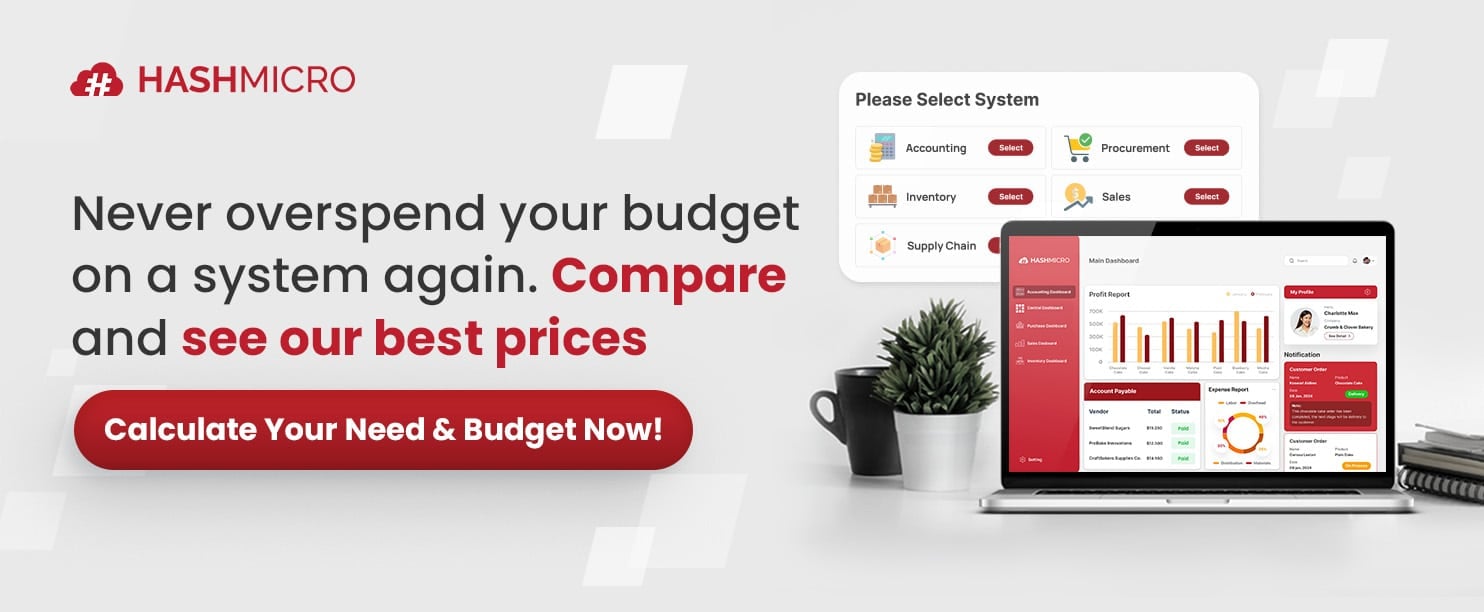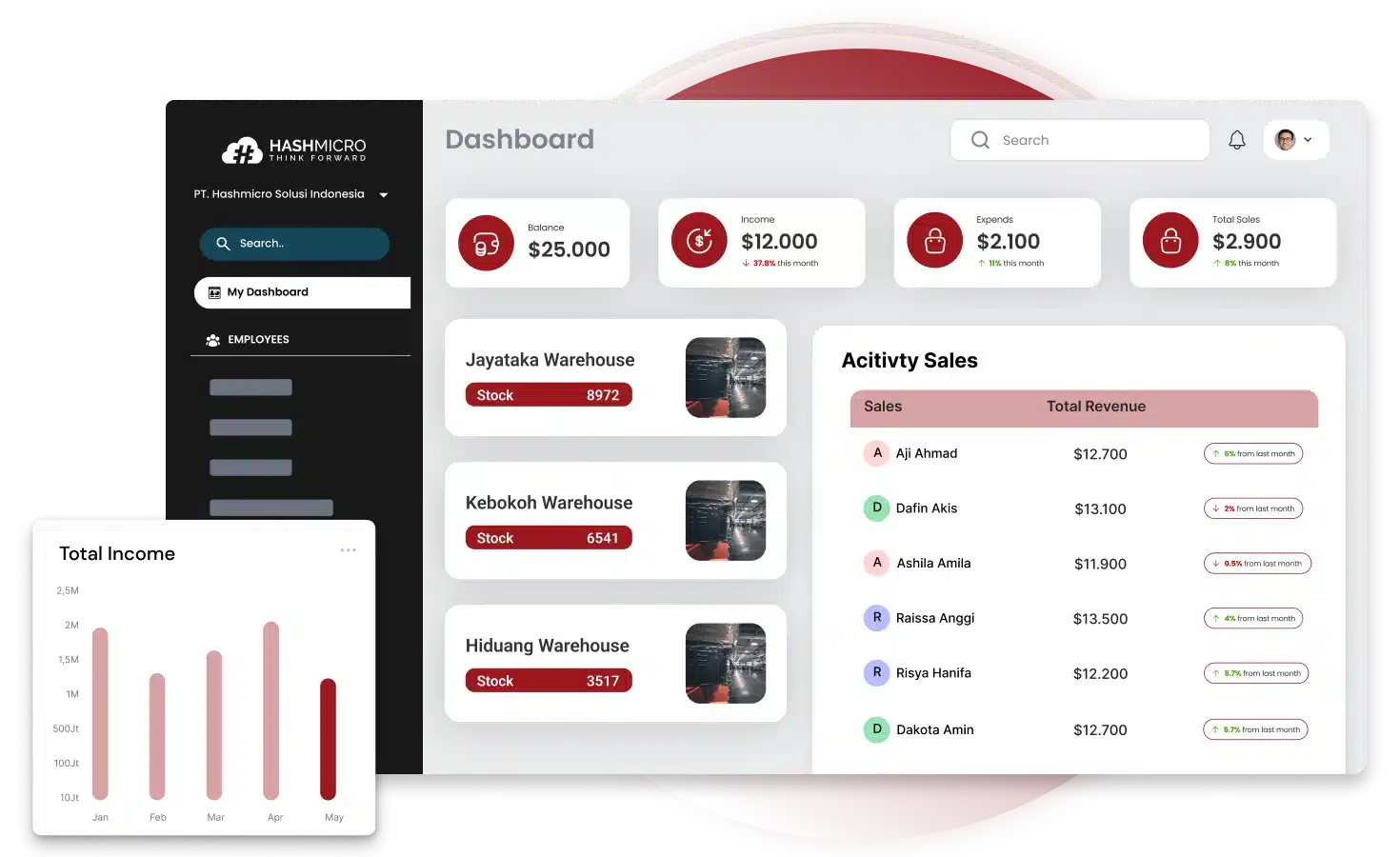Business people, did you know that Cloud ERP systems contribute to the development and profitability of organizations by providing integrated business solutions? This fact proved that this technology is crucial for Malaysian business who wants to grow their business in a digital era.
With numerous benefits, cloud based solution become a favored solution for companies, contrast with on-premise ERP. That is why this article exist to help you understand about the definition of cloud ERP, security and compliance issues, provide a roadmap for successful implementation.
If you’re a business in Malaysia looking to enhance your operational efficiency, continue reading to discover how cloud based solution can benefit your organization.
Key Takeaways
|
Table of Content
Content Lists

What Is Cloud ERP?
Cloud ERP is an enterprise resource planning (ERP) systems hosted on remote servers and accessible via the internet. This modern approach contrasts with traditional on-premise ERP systems, offering businesses unparalleled flexibility, scalability, and accessibility.
Transitioning from on-premise to cloud-based solutions has revolutionized the ERP landscape, offering a more cost-effective and efficient management of business processes. Malaysian businesses can now access critical operations anytime and anywhere.
Cloud ERP vs On-Premise ERP
Understanding the differences between cloud ERP vs. on-premise ERP systems is crucial when selecting an ERP solution. Each model offers distinct functionalities and accessibility, catering to different business needs.
Cloud ERP solutions like HashMicro’s best ERP software provide a plethora of features that are accessible remotely, offering unmatched flexibility and mobility for your team. It enable Malaysian businesses to scale swiftly, access data in real-time, and integrate seamlessly with other applications.
On the contrary, on-premise ERP systems require physical installation and maintenance. While they allow more control and customization, the initial and ongoing costs are considerably higher. They may be preferable for organizations with specific security or compliance needs.
In summary, cloud ERP offers flexibility and scalability crucial for thriving in a digital economy, whereas on-premise ERP allows for greater customization and control. The choice hinges on your specific business needs and strategic goals.
Benefits of Cloud ERP

Adopting best ERP software can significantly benefit Malaysian businesses in several ways:
- Cost efficiency: Cloud ERP eliminates the need for significant upfront hardware investments, helping businesses reduce IT expenses and better allocate resources.
- Enhanced collaboration: It facilitates improved collaboration and communication across departments, enabling real-time data sharing and decision-making.
- Scalability: Cloud ERP allows businesses to adjust their resources according to growth and demand changes without further hardware investment.
- Accessibility: With cloud based solution, employees can access necessary applications from any location, promoting productivity even when remote working.
- Simplified access: Businesses can access their ERP systems using a simple web interface, bypassing the need for complex installations.
- Robust security: Advanced security measures protect sensitive business information, including data encryption and controlled access.
Key Components of Cloud ERP Software
Cloud ERP software is comprised of several integral components that work together to streamline and optimize various business processes. Mulanya, the accounting and finance module inside cloud ERP system provides used for financial reporting, budgeting, expense management, and compliance tracking.
Human Resources (HR) Management is another critical component of cloud ERP software. This module handles employee data management, payroll processing, recruitment, performance evaluations, and training programs.
The Supply Chain Management (SCM) module focuses on optimizing the flow of goods, services, and information from suppliers to customers. It encompasses inventory management, procurement, order fulfillment, and logistics.
Customer Relationship Management (CRM) is a vital cloud ERP’s tools for managing sales processes, marketing campaigns, customer service, and support. It helps businesses build stronger relationships with their customers by providing insights into customer behavior, preferences, and feedback.
Lastly, the Manufacturing module is essential for business process management planning, material management, quality control, and equipment maintenance.This module ensures that production is efficient, cost-effective, and aligned with demand forecasts.
In summary, the key components of cloud based ERP software are accounting and finance, HR management, supply chain management, CRM, and manufacturing. They should work in unison to provide a comprehensive solution for managing all aspects of a business.
Choosing the Right Cloud ERP
Selecting the appropriate cloud ERP solution is a critical decision for Malaysian businesses aiming to enhance their operational efficiency and drive growth.
Firstly, it is essential to evaluate the cost structure of potential ERP systems. Consider not only the initial investment but also the ongoing subscription fees, maintenance costs, and any hidden charges.
Secondly, scalability should be a key consideration. the ERP system must be capable of growing alongside your business, accommodating increasing data volumes and expanding user bases without compromising performance.
Another vital factor is the customization and flexibility of the ERP software. Malaysian businesses often operate in diverse industries, each with unique processes and requirements. Therefore, selecting a cloud ERP that offers extensive customization options can significantly enhance productivity.
Evaluating the vendor’s reputation and the quality of their customer support is equally important. Partnering with a reliable ERP provider that offers robust support services, timely updates, and comprehensive training ensures a smoother implementation process and ongoing system optimization.
By thoroughly assessing these factors—cost, scalability, customization, integration capabilities, vendor reliability, security, and user-friendliness—Malaysian businesses can make informed decisions that not only meet their current needs but also support their long-term strategic objectives.
Security and Compliance in Cloud Based ERP

Cloud ERP providers implement robust security measures, including data encryption, strict access controls, and regular security audits, to protect sensitive business information from unauthorized access and cyber threats.
Compliance with local and international regulations is another vital aspect addressed by cloud systems. Malaysian businesses must adhere to data protection laws and industry-specific standards, and reputable cloud based ERP providers ensure their solutions meet these regulatory requirements.
By choosing a compliant cloud ERP like HashMicro, businesses can avoid legal issues and maintain operational integrity, seamlessly aligning their processes with necessary compliance standards.
Implementing Cloud ERP
Successful cloud ERP implementation in Malaysia follows a structured approach, such as:
Step 1: Assess Business Needs
Before embarking on the implementation of a cloud solution system, it is essential to identifying the specific functionalities and features that your organization needs to enhance its operations. Consider the size of your business, the number of user, and the particular processes you aim to streamline
Step 2: Select the Right Cloud ERP Vendor
Evaluate potential vendors based on their experience, reputation, and the quality of their customer support. Look for providers that offer robust solutions tailored to your industry and can demonstrate a track record of successful deployments in similar business environments.
Step 3: Data Migration
Develop a comprehensive data migration plan to ensure that all critical information is accurately transferred without disrupting your business operations. This may involve cleaning and organizing your data beforehand to enhance its quality and integrity.
Step 4: System Configuration and Customization
Once your data has been successfully migrated, the next step is to configure and customize the cloud based ERP to match your specific business processes and workflows. This involves setting up user roles, defining workflows, and adjusting system settings to meet your operational requirements.
Step 5: Testing
Thorough testing is essential to identify and resolve any potential issues before the cloud ERP system goes live. Conduct various types of testing, including functional, integration, and performance testing, to ensure that the system operates smoothly and meets your business requirements.
Step 6: Training and Change Management
Provide comprehensive training sessions to familiarize your staff with the system’s functionalities and features. Additionally, implement change management strategies to address any resistance and promote a positive attitude towards the new technology.
Step 7: Post-Implementation Support and Optimization
After the cloud ERP system is live, ongoing support and optimization are necessary to maintain its effectiveness. Provide continuous support to address any issues that arise and gather feedback from users to identify areas for improvement.

Future Trends in Cloud ERP
The cloud system landscape in Malaysia is continually evolving, with several emerging trends set to transform how businesses operate. One significant trend is the integration of artificial intelligence (AI) and machine learning (ML) into cloud ERP systems.
AI and ML enhance decision-making by analyzing large volumes of data to provide actionable insights, while automation of routine tasks boosts operational efficiency. Malaysian enterprises can leverage these technologies to optimize their processes, improve accuracy, and gain a competitive edge in the market.
Another promising development is the adoption of blockchain technology within cloud solutions. Blockchain offers secure and transparent transactions, ensuring the integrity and privacy of sensitive business data.
Furthermore, the development of industry-specific cloud ERP solutions continues to grow, enabling Malaysian businesses to tailor their ERP systems to meet the unique demands of their respective sectors. These specialized solutions help optimize workflows, drive efficiency, and foster innovation.
HashMicro: A Superior Cloud ERP for Malaysian Businesses

HashMicro is an integrated ERP software designed for various industries. Trusted by over 2000 clients, including top companies like Toyota, HashMicro has established itself as a reliable cloud based ERP solution by offering a free demo for businesses in Southeast Asia, including Malaysia.
Benefits of using HashMicro’s ERP software:
- HashMicro has a short learning curve that makes it easy for new users to operate the software.
- Fast and accurate data collection and uploading, minimizing data discrepancies.
- Offers a free demo for businesses to give the best visualization of how the ERP software works.
- Unlimited users with no additional cost.
- It has an interactive UI/UX design, so everyone who is not tech-savvy can still use it.
- Giving the best security data, so there’s no data loss.
- HashMicro is compliant with local Philippine regulations, supporting more accurate business development to meet the needs of local and multinational markets.
HashMicro’s key features:
- Built-in BI (Business Intelligence): Tools to transform and rotate data from different angles for more in-depth analysis.
- WhatsApp integration: Simplify, speed up, and streamline business communication.
- Mobile apps: The app is available on iOS and Google Play Store platforms, allowing easy access from various mobile devices.
- Sheet management: Efficiently manage, automate, and analyze spreadsheets or business documents in spreadsheet format while ensuring data security and module integration.
- Access-level: Features that manage and restrict employee access to various data and functions in the system based on roles and responsibilities.
Conclusion
HashMicro ERP solution for Malaysian businesses. It offers superior customization, integration capabilities, and user-friendly features. Its flexibility and robust analytics make it a strategic tool for improving business efficiency and performance.
If you are looking for a reliable Cloud ERP system to help your business grow, HashMicro could be your best option besides Epicor ERP. Try the free demo and explore how it can transform your business operations.

FAQs About Cloud ERP
-
Can ERP replace CRM?
ERP systems include basic CRM features but cannot fully replace dedicated CRM solutions. CRM tools are specifically designed to manage customer interactions and sales processes. Integrating both ERP and CRM systems is recommended for optimal customer management.
-
Is AI replacing cloud computing?
No, AI is not replacing cloud computing; instead, they complement each other. AI leverages cloud computing’s scalable infrastructure and data management capabilities to perform complex analyses and machine learning tasks.
-
How do I migrate from ERP to cloud?
Migrating from an on-premise ERP to the cloud involves several key steps. First, assess your current ERP system and determine your specific requirements. Next, choose a reputable cloud ERP provider, plan and execute the data migration, and provide training for your staff to ensure a smooth transition.
-
Will cloud be replaced?
Cloud computing is unlikely to be completely replaced, as it remains essential to modern business infrastructure. Instead, it will continue to evolve by integrating with emerging technologies and adapting to changing needs.




































